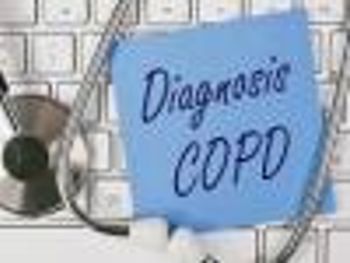
Mylan's drug is approved for 100 mcg/50 mcg, 250 mcg/50 mcg, and 500 mcg/50 mcg doses.

Mylan's drug is approved for 100 mcg/50 mcg, 250 mcg/50 mcg, and 500 mcg/50 mcg doses.

The generic drug (Wixela Inhub, Mylan) is indicated to treat patients with asthma and chronic obstructive pulmonary disease, including bronchitis and emphysema.

Teva has just unveiled the world's first integrated smart inhaler to the market.


The FDA has approved dupilumab (Dupixent, Regeneron and Sanofi) in patients with moderate-to-severe asthma aged 12 years and older

The FDA has approved dupilumab (Dupixent, Regeneron and Sanofi) in patients with moderate-to-severe asthma aged 12 years and older.

The FDA has approved dupilumab (Dupixent®, Regeneron and Sanofi) as an add-on maintenance therapy in patients with moderate-to-severe asthma aged 12 years and older with an eosinophilic phenotype or with oral corticosteroid-dependent asthma.

Teva Pharmaceutical Industries Ltd has released Qvar Redihaler (beclomethasone dipropionate HFA).

A look at last week's top stories in the world of pharmacy.

This weekly video program provides our readers with an in-depth review of the latest news, product approvals, FDA rulings, and more. Our Week in Review is a can't miss for the busy pharmacy professional.

One lot of Montelukast Sodium Tablets is being voluntarily recalled by Camber Pharmaceuticals, due to a safety risk for consumers.

More than 4 in 10 women with asthma may develop chronic obstructive pulmonary disorder, but many risk factors are modifiable.

Pharmacist-led interventions can increase medication adherence, and reduce its economic burden on healthcare.

Both asthma and attention-deficit/hyperactivity disorder (ADHD), both chronic conditions, have been associated with each other in previous studies, but questions remained as to the strength of the association because of other possible confounders.

A new research study, published in JAMA Cardiology, aimed to further confirm a previous correlation between asthma and atrial fibrillation (AF) and to determine if the degree of asthma control affected the risk of developing AF.


A lack of education leaves 31% of asthma/COPD patients with poor inhaler procedures.

Experts are beginning to see that some phenotypes respond better to certain treatment approaches for asthma.

In a recent study, researchers set out to identify the reasons why prescribers and pharmacists continue to prescribe NS β‐blockers despite the guidelines recommending against it.

Should emergency room clinicians use a breath-actuated nebulizer (BAN) or is a metered-dose inhaler (MDI) a better choice?

For health care providers, staying up to date on drug development trends is crucial to understanding the implications of these therapies and how they can best help their patients.

An emerging area of investigation in asthma and chronic obstructive pulmonary disease is use of statins.

A new study evaluated which interventions were effective at the point of discharge from the hospital to prevent readmission.

Antibiotics may worsen the care of some adult patients hospitalized with asthma exacerbations.

Prescription medication use for attention-deficit/hyperactivity disorder (ADHD), asthma, and contraception have all increased in children and teens.